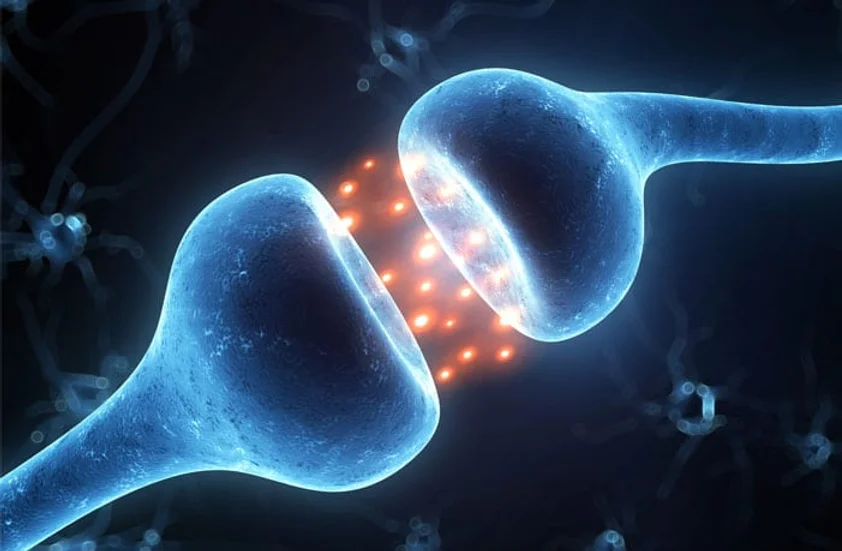Sep 7, 2023
Have you ever wondered why certain foods make you feel happier or more energized?
It may be due to the fact that what you eat plays a crucial role in the synthesis of dopamine, a neurotransmitter that is responsible for regulating mood, motivation, and pleasure. One of the key characteristics of ADHD can be difficulty with focus and attention, and research has suggested that this may be linked to changes in the brain's dopamine system.
Let’s explore the fascinating connection between nutrition and dopamine synthesis and look at some interesting facts drawn from studies.
First, let's talk about what dopamine is and why it's important. Dopamine is a neurotransmitter that helps to transmit signals between nerve cells in the brain. It's often referred to as the "feel-good" chemical because it's associated with feelings of pleasure and reward. When dopamine levels are low, it can lead to symptoms such as depression, lack of motivation, and fatigue.
So, how can you increase your dopamine levels naturally? One way is through nutrition. Here are some interesting facts about the role of nutrition in dopamine synthesis:
Tyrosine
Tyrosine is an amino acid that is essential for the production of dopamine.
Tyrosine is a precursor to dopamine, meaning that it's the building block that the body uses to create dopamine. Once tyrosine is consumed, it's converted into L-DOPA, which is then converted into dopamine. This conversion process requires the presence of certain enzymes in the body.
Research has shown that consuming foods that are high in tyrosine can increase dopamine levels in the brain. Tyrosine-rich foods include avocados, bananas, eggs, dairy products, meat, fish, and soy products.
However, it's important to note that simply consuming more tyrosine does not necessarily mean that dopamine levels will automatically increase. The body's ability to produce dopamine is a complex process that involves multiple factors, including the availability of enzymes, other nutrients, and co-factors.
Also, certain factors can deplete tyrosine levels in the body, including stress, lack of sleep, and intense exercise. This can lead to a decrease in dopamine production, which can result in those symptoms mentioned earlier, such as fatigue, lack of motivation, and depression.
Supplementing with tyrosine has been shown to be effective in increasing dopamine levels in some studies. However, it's very important to consult with a healthcare professional or nutritionist before taking any supplements, as supplementation can have negative effects on health in some cases.
Protein Foods.
Proteins are made from amino acids, such as tyrosine. it seems logical to conclude, then, that increasing protein intake may also boost dopamine. Studies have indeed demonstrated that eating a protein-rich breakfast, including eggs, dairy and lean meats, had the added benefit of reducing mid-morning cravings whilst increasing dopamine levels.
Nuts and seeds
A great source of protein and tyrosine can be found in nuts and seeds. The amino acid is abundantly present in almonds, walnuts and flax in particular, so snacking on a handful of nuts can help give your dopamine levels a boost.
Good news, chocolate lovers!
Dark chocolate is a food that has been shown to have potential benefits for dopamine synthesis.
Dark chocolate contains cocoa, which is a rich source of flavanols, a type of polyphenol that has been shown to have antioxidant and anti-inflammatory effects. Flavanols have also been shown to increase blood flow to the brain, which can have positive effects on cognitive function and mood.
Cocoa contains a compound called epicatechin, which has been shown to increase dopamine levels in the brain. In one study, participants who consumed a high-cocoa chocolate drink experienced an increase in dopamine levels compared to those who consumed a low-cocoa drink.
In addition to its potential effects on dopamine synthesis, dark chocolate has also been shown to have other potential health benefits. Research has suggested that consuming dark chocolate may help to lower blood pressure, improve blood sugar control, and reduce inflammation.
However, it's important to note that not all chocolate is created equal. Milk chocolate and other types of chocolate that contain high amounts of sugar and fat may not have the same potential health benefits as dark chocolate. It's also important to consume dark chocolate in moderation, as it still contains calories and can contribute to weight gain if consumed in excess.
Let's talk about omega-3 fatty acids and their potential role in dopamine synthesis.
Omega-3 fatty acids are a type of polyunsaturated fat that is essential for overall health. They are particularly important for brain health, as they play a role in neurotransmitter synthesis and communication.
Research has shown that omega-3 fatty acids can have positive effects on dopamine synthesis. One study found that participants who consumed a diet rich in omega-3 fatty acids had higher levels of dopamine in their brains compared to those who consumed a diet low in omega-3 fatty acids.
Omega-3 fatty acids are also important for the production and function of dopamine receptors. Dopamine receptors are proteins that are located on the surface of cells and are responsible for transmitting signals to the brain. Research has suggested that omega-3 fatty acids can help to maintain the integrity of dopamine receptors and improve their function.
Omega-3 fatty acids are found in a variety of foods, including fatty fish (such as salmon, mackerel, tuna, and sardines), nuts and seeds (such as walnuts and chia seeds), and plant oils (such as flaxseed). Omega-3 supplements are also available, but it's important to consult with a healthcare professional or nutritionist before taking any supplements.
In addition to their potential effects on dopamine synthesis, omega-3 fatty acids have been shown to have other potential health benefits, including reducing inflammation, improving heart health, and supporting cognitive function.
Caffeine.
Caffeine is a natural stimulant that is found in coffee, tea, and other beverages. It is known to increase alertness and improve cognitive function, and it has also been shown to affect dopamine synthesis.
Research has suggested that caffeine can increase dopamine release in the brain by blocking the activity of adenosine, a neurotransmitter that inhibits dopamine release. By blocking adenosine, caffeine can increase the activity of dopamine-producing neurons and lead to an increase in dopamine synthesis.
However, it's important to note that the effects of caffeine on dopamine synthesis may depend on individual factors such as genetics and frequency of caffeine consumption. Some studies have suggested that regular caffeine consumption may lead to a decrease in dopamine receptors and an increase in tolerance, meaning that higher amounts of caffeine may be needed to achieve the same effects over time.
It's also important to consume caffeine in moderation, as excessive consumption can lead to negative side effects such as anxiety, jitteriness and disrupted sleep patterns.
It is also important to remember that caffeine can result in side effects if you are taking stimulant medication for ADHD. In addition to these specific foods and nutrients, it's also important to follow a balanced diet that includes plenty of fruits, vegetables, and whole grains. A diet that is very high in processed foods and sugar, particularly sugar-sweetened drinks, can lead to inflammation and oxidative stress, which can negatively affect dopamine synthesis.
We've talked about the role of nutrition in dopamine synthesis, and it's clear that what we eat can significantly impact our brain chemistry and overall well-being. From tyrosine-rich foods to omega-3 fatty acids and dark chocolate, plenty of delicious and nutritious options may support dopamine production and function.
Of course, it's important to keep in mind that there's no single magic food or nutrient that will instantly boost dopamine levels. Eating a balanced diet that includes a variety of whole foods, regular exercise, and healthy lifestyle habits is key to supporting brain health and overall wellness.
And when it comes to caffeine, it's okay to indulge in that morning cup of coffee or afternoon tea, as long as you're consuming it in moderation and being mindful of how it affects your body and brain.
All in all, by making informed choices about the foods and drinks we consume, we can support our brain chemistry and improve our mood, cognition, and overall quality of life. So, go ahead and enjoy that delicious and nutritious meal or snack, knowing that you're nourishing your body and brain in the best way possible!
Have you joined our Free Facebook Community for Nutrition and Diet tips for ADHD. Sarah holds weekly LIVE Q&A's to answer your questions.
https://www.facebook.com/groups/sonutritioncommunity
ADHD Nutrition and Meal planner is now available to order; get yours here:








